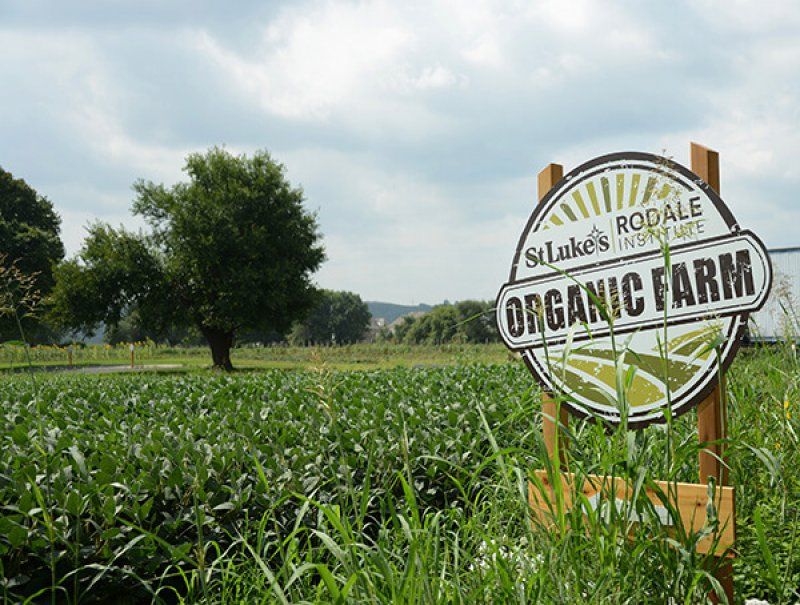In order to be certified organic in the US, farmland must undergo a three-year transition period before products from that operation can bear the infamous green seal, according to the country’s National Organic Program.
This can be a major disincentive to producers no matter how badly they want to farm organically, especially when it comes to the upfront cost of transition. For many, leasing or purchasing an already-certified farm would be ideal. But despite a $55 billion market for organic products, only 1% of US farmland is certified as such.
“The key is land access,” says Alex Mackay, director of business development and investor relations at Iroquois Valley Farmland Real Estate Investment Trust.
“Independent organic farmers do not have the opportunities they need as it relates to financing additional land access. Either traditional lenders don’t like organic because of the more sophisticated way that organic farms cash flow, or there is a lack of agricultural lending in the communities where we work,” he tells AFN.
Iroquois Valley attempts to plug this gap by providing long-term leases and mortgages to organic producers, with the goal of increasing organic acreage in the US. It operates under a real estate investment trust (REIT) structure, which allows it to acquire real estate, securitize it, and then sell units in these securities to investors – who get to share in rental proceeds in the form of regular dividend-like payments.
According to Mackay, farmers typically make the first move, seeking out Iroquois Valley rather than the other way round. The REIT often has a longer list of farmers seeking land access than land available, he claims.
Rodale Institute recently invested $2 million into Iroquois Valley out of its endowment fund. The organic-focused nonprofit has been working on organic agriculture research, outreach, and education for over 70 years.
“As a company approaching $70 million in assets, that $2 million investment is quite significant for us. We really appreciate their support and think it says a lot about our organizations’ alignment and the important impact of the work we’re both trying to do,” Mackay says.
Iroquois Valley is having its best fundraising year to date, he adds, thanks in part to Rodale’s investment.
Top 5 shareholder
Rodale’s board made the decision to back the REIT out of a desire to increase land access for organic farmers across the country while boosting organic acreage, both core tenets of the Institute’s mission. It owns and operates a 333-acre research farm in Kutztown, Pennsylvania, with additional campuses in California, Georgia, and Iowa.
“We were asking whether we want to purchase additional farmland and transition it into organic ourselves and manage that, or whether our money could help more farmers and acres come into organic,” Rodale Institute CEO Jeff Moyer told AFN.
Another motivating factor was the Institute’s perception of the bond market — which could’ve provided an alternative route for funding would-be organic farmers — as not performing well, and having a poor outlook for the next two years.
“We thought [that] rather than sitting on an investment that may not be doing well as part of our balanced portfolio, maybe we could reinvest that in another way that would have more impact in line with our mission and vision,” Moyer said.
The investment makes Rodale Institute one of the top five shareholders in Iroquois Valley. The two entities have worked together in the past, with Rodale serving as a nonprofit consultant to some of the farmers working on the REIT’s holdings.
“We were always looking for ways to work with them because we really like their business model,” Moyer said. “They look for organic farmers who are successful as farmers but need access to more land. They purchase land for them, work with them to transition it to organic, and help them possibly become owners of the land themselves.”
American Farmland Trust is also working to help knock down barriers to land access for farmers. It recently received a $750,000 grant from the National Institute of Food and Agriculture to help develop a skills-based curriculum that can train a new generation of farmers as they confront the complex financial, legal, and interpersonal issues related to agricultural land and business transfer.
Rodale’s ROC label
Earlier this year, Rodale Institute announced a new certification called Regenerative Organic Certified (ROC). It combines the National Organic Program standards with a new set of requirements centered around three new components: soil health, animal welfare, and social justice. Continuous improvement is also a key focus of the program.
“I believe we are getting around 10 to 20 brands coming on per month to begin applying for certification, which will then move farms and producers in that direction,” Moyer explained.
“I don’t want to say it’s been a slow process, because sometimes it feels like it is going too fast to keep up with. But it takes time as the marketplace grows.”
ROC has only been available to interested parties since August 2020. Another hurdle that has to be overcome before the new label is more widely adopted is the issue of ensuring that private organic certifiers — who do the heavy lifting of deciding whether an applicant is up to snuff — are fully educated on it.
“That’s taking place right now. Many of the existing certifiers are working on getting their credentials so they can become ROC certifiers as well, Moyer says.





